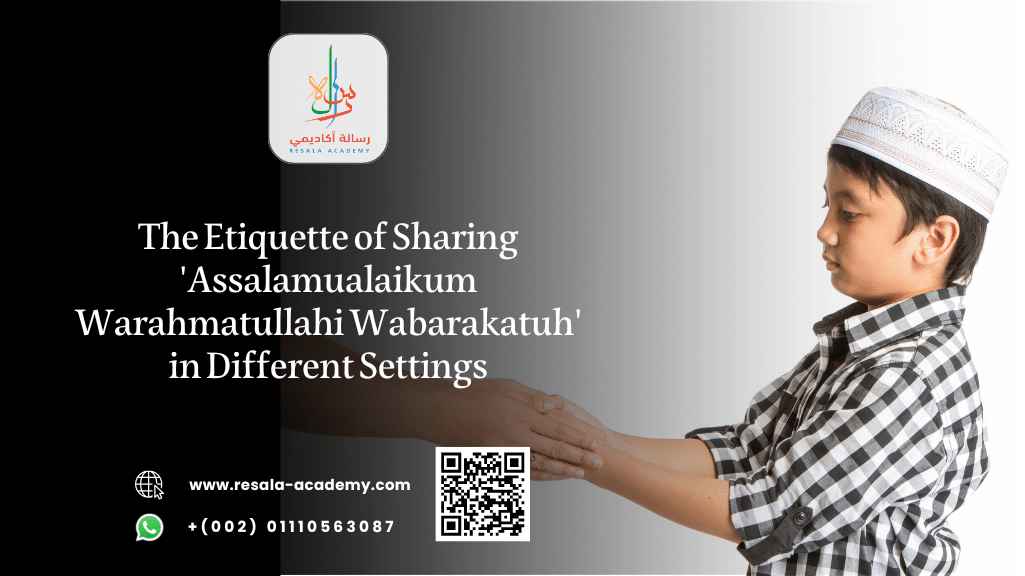Table of Contents
Exploring the Richness of Arabic Fusha: Its History, Grammar, and Usage
Salaam alaikum, language enthusiasts, and culture connoisseurs! Are you ready to delve into the enchanting world of Arabic Fusha? Brace yourself for an exploration like no other as we unravel the rich tapestry of this ancient and prestigious language.
Arabic Fusha, also known as Modern Standard Arabic, is not just another dialect. It’s a linguistic gem that connects millions across the Arab-speaking world. While its roots can be traced back to Classical Arabic, Fusha has evolved to serve as a lingua franca for literature, media, diplomacy, and more.
In this blog post, we’ll take you on an exhilarating journey through the history, grammar intricacies, regional variants, and common phrases in Arabic Fusha – all while sharing valuable resources and tips for mastering this captivating language. So grab your virtual passports and let’s embark on this linguistic adventure together! Bismillah!
Understanding Modern Standard Arabic (Fusha)
Imagine stepping into a time capsule that transports you to the heart of ancient Arabia, where poetry flowed like rivers and wisdom dripped from every word. That’s the essence of Modern Standard Arabic, or Fusha as it is lovingly called by language enthusiasts.
Fusha serves as a bridge between past and present, connecting us to the rich heritage of Classical Arabic while remaining relevant in today’s world. It allows us to dive deep into classical literature, explore religious texts, and engage with diverse Arab communities across borders.
Unlike regional dialects that vary greatly from country to country, Fusha provides a standardized form of communication understood by educated speakers throughout the Arab world. Think of it as the literary equivalent of wearing your finest attire – elegant, sophisticated, and universally appreciated.
While learning any new language requires dedication and perseverance, don’t be intimidated by Fusha! Its grammar rules may seem complex at first glance but fear not – with practice and guidance from experienced teachers or resources designed specifically for learners like yourself – you’ll gradually unlock its secrets.
So buckle up for this linguistic adventure! From unraveling grammar intricacies to embracing common phrases used in everyday conversations – we’re here to accompany you on this exciting journey through the captivating realm of Arabic Fusha. Get ready to broaden your horizons and immerse yourself in an ocean of words waiting patiently to be discovered.
Differences between Fusha Arabic and Classical Arabic
1. Pronunciation: One key difference between Arabic Fusha and Classical Arabic lies in their pronunciation. While Fusha is more standardized, with specific rules for vowel sounds, Classical Arabic allows for greater variation in pronunciations.
2. Vocabulary: Another distinction can be found in the vocabulary used. Fusha incorporates many loanwords from different languages over time, such as English and French, making it more adaptable to modern contexts. In contrast, Classical Arabic maintains a more traditional vocabulary rooted in ancient times.
3. Syntax: The sentence structure of these two forms of Arabic also varies slightly. Fusha tends to follow a stricter word order pattern while Classical Arabic allows for more flexibility in arranging words within sentences.
4. Usage: The usage of Fusha and Classical Arabic differs based on context and function. Fusha is commonly used in formal settings like literature, official documents, or religious texts; whereas Classical Arabic is mainly reserved for studying ancient texts or reciting poetry.
It’s fascinating how these subtle differences have shaped both forms of language throughout history! Whether you’re interested in mastering Modern Standard or delving into classical literature, exploring these nuances will deepen your understanding of this rich language!
Regional Variants and Speakers of Fusha Arabic
Arabic Fusha, also known as Modern Standard Arabic (MSA), is a fascinating language with rich regional variations. While Fusha serves as the standard form of Arabic used in media, literature, and formal settings across the Arab world, it’s important to note that each region has its unique dialects and accents.
In Egypt, for example, you’ll hear a distinct pronunciation and vocabulary compared to other Arab countries. The Egyptian dialect is widely understood due to the popularity of Egyptian movies and music in the region. It adds a vibrant flavor to conversations!
Lebanon boasts another renowned variation of the Arabic Fusha. Lebanese people have their way of pronouncing certain letters and incorporating French loanwords into their everyday speech. This distinctive blend gives Lebanese Arabic its charm.
Gulf countries like Saudi Arabia, Qatar, and Kuwait have their own set of dialects too. These variants are characterized by softer consonant sounds and unique vocabulary specific to each country.
Even within regions themselves, there can be further sub-dialects! For instance, Moroccan Arabic differs from other North African dialects due to its heavy Berber influence.
The beauty lies in this linguistic diversity – it reflects the cultural tapestry found throughout the Arab world. So whether you’re learning Fusha for travel or communication purposes, understanding these regional nuances will enrich your experience with this captivating language!
Grammar of Fusha Arabic
Grammar may seem like a daunting word, but fear not! Arabic grammar is quite fascinating. Arabic Fusha, also known as Modern Standard Arabic (MSA), has its own unique set of rules and structures that make it a beautiful language to explore.
In Fusha Arabic, nouns have different forms depending on their function in the sentence. There are three cases: nominative, genitive, and accusative. Verbs also undergo changes based on tense, aspect, mood, voice, and person. And let’s not forget about the intricate system of roots and patterns that form the basis of Arabic vocabulary!
Sentence structure in Arabic Fusha follows a Subject-Verb-Object pattern for simple sentences. However, complex sentences can have different orders depending on the emphasis or style desired. Additionally, there are no articles or verb “to be” in Arabic Fusha – talk about simplifying things!
Punctuation plays an important role in conveying meaning in written Arabic Fusha. From commas to semicolons to question marks – they all help shape the message you want to convey.
So why dive into the depths of Fusha’s Arabic grammar? Well, mastering these grammatical structures will enable you to express yourself fluently and accurately while speaking or writing in this rich language.
Ready for more? Let’s delve into some common phrases used in everyday conversations using Fusha Grammar next! Stay tuned!
Common Phrases in Arabic Fusha
One of the fascinating aspects of learning Arabic Fusha is discovering the richness of its common phrases. These everyday expressions not only allow you to communicate effectively but also provide a glimpse into the cultural nuances of Arab societies. Let’s explore some popular phrases that will surely enhance your conversation skills!
Firstly, “Marhaban” or “Ahlan” are commonly used greetings meaning “hello.” They can be used both formally and informally, depending on the context. Another useful phrase is “Shukran,” which means “thank you.” It’s important to show gratitude when interacting with others, and this phrase will come in handy.
When expressing agreement or approval, say “Naam,” which means “yes.” On the other hand, if you want to disagree politely, use “La’,” meaning “no.” Adding these simple words to your vocabulary will enable smooth interactions with native speakers.
To inquire about someone’s well-being, ask them how they are by saying “Kayfa Haluka?” for males or “Kayfa Haluki?” for females. Additionally, during conversations when something surprises you or catches your attention, exclaim “Subhanallah!” meaning “Glory be to God!”
Remember that practicing these phrases regularly will help familiarize yourself with their proper usage and intonation. So go ahead and immerse yourself in Arabic Fusha by incorporating these common phrases into your daily conversations!
Resources and Tips for Learning Fusha Arabic
1. Online Language Courses: Look for reputable online language platforms that offer Arabic Fusha courses. These courses provide structured lessons, interactive exercises, and the opportunity to practice with native speakers.
2. Language Exchange Programs: Join language exchange programs where you can connect with native Arabic speakers who are interested in learning your language. This way, you can practice speaking Arabic Fusha while helping them improve their skills in your native tongue.
3. Mobile Apps: Make use of language-learning apps specifically designed for learning Arabic Fusha. These apps often include vocabulary drills, grammar explanations, audio recordings for pronunciation practice, and even games to make the learning process more enjoyable.
4. Immersive Experiences: Immerse yourself in the culture by watching movies or TV shows in Arabic Fusha or listening to podcasts and music in this beautiful language. This exposure will help you become familiar with common phrases and the natural flow of conversation.
5. Practice Writing: Regularly write short essays or journal entries using Arabic Fusha to reinforce what you’ve learned so far. Engaging in writing exercises helps solidify grammar rules and expands your vocabulary.
6. Find a Study Group: Connect with fellow learners through online forums or social media groups dedicated to studying Arabic Fusha together. Sharing resources, discussing challenges, and practicing conversations will enhance your overall progress.
7. Explore Multimedia Resources: Utilize websites offering videos or audio recordings where you can listen to native speakers conversing naturally in Arabic Fusha.
8. Arabic-English Dictionary: Invest in a good bilingual dictionary that includes both English translations as well as detailed explanations of words’ meanings and usage examples.
Remember that consistency is key when learning any new language – set aside regular study time each day, stay motivated, and be patient with yourself as you progress gradually!
Resala Academy Offers Online Arabic Fusha Classes
Are you ready to dive into the world of Arabic Fusha? Look no further than Resala Academy, your gateway to mastering this beautiful language! With a wide range of online Fusha Arabic classes, Resala Academy is here to help you unlock the secrets of this ancient and rich language.
At Resala Academy, we understand that learning a new language can be challenging. That’s why our experienced instructors are there for you every step of the way. Whether you’re a beginner or an advanced learner, our courses cater to all levels. You’ll receive personalized attention and guidance as you navigate through grammar rules, vocabulary-building exercises, and conversational practice.
What sets Resala Academy apart is our innovative teaching methods. We believe in making learning fun and interactive by incorporating multimedia resources such as videos, audio clips, and interactive quizzes. Our goal is not only to teach you the mechanics of Fusha Arabic but also to immerse you in its cultural context.
Flexibility is another hallmark of our online classes. No matter where in the world you are located or what your schedule looks like, we have flexible course timings that can accommodate your needs. Plus, all our classes are conducted via video conferencing platforms so that you can learn from the comfort of your own home.
So why wait? Start your journey towards fluency in Arabic Fusha today with Resala Academy! Join us as we explore the richness and beauty of this timeless language together.
FAQs
1. Is Arabic Fusha the same as Classical Arabic?
Although closely related, there are some differences between Fusha and Classical Arabic. While Classical Arabic is primarily used in literature and religious texts, Fusha is a more modern version of the language that’s commonly spoken across Arab countries. However, both share similar grammar rules and vocabulary.
2. Can I use Fusha to communicate with native speakers?
Absolutely! While regional dialects may vary across different Arab countries, most native speakers can understand and communicate in Fusha without any major difficulties. Learning this standardized form of Arabic will give you a solid foundation for interacting with people from various regions.
3. How difficult is it to learn Fusha?
Learning any new language requires effort and dedication, but don’t let that discourage you! With regular practice and guidance from experienced instructors, you can grasp the fundamentals of Fusha relatively quickly. Remember to be patient with yourself – mastering a new language takes time.
4. Are there online resources available for learning Fusha?
Yes! There are plenty of online resources available to help you learn Fusha at your own pace. From textbooks and audio lessons to interactive websites and mobile apps, these tools provide comprehensive support for learners of all levels.
Conclusion
Arabic Fusha, also known as Modern Standard Arabic, is a language that carries with it a rich history and cultural significance. From its roots in Classical Arabic to its modern usage as the lingua franca of the Arab world, Fusha Arabic continues to captivate learners and enthusiasts alike.
Throughout this article, we have explored various aspects of Fusha Arabic. We have delved into its origins and differences from Classical Arabic, highlighting how it has evolved while still maintaining its essence. We have also discussed regional variants and the diverse range of speakers who communicate in Fusha Arabic.
Additionally, we have examined some key elements of Fusha Arabic grammar, shedding light on its unique structure and features. By understanding these grammatical principles, learners can navigate the language more effectively and express themselves fluently.
We have also provided examples of common phrases in Fusha Arabic to give readers a taste of everyday communication in this beautiful language. Whether you are interested in formal or informal settings, having a grasp of these phrases will undoubtedly enrich your interactions with native speakers.
For those looking to embark on their journey towards mastering Fusha Arabic, we have shared valuable resources and tips for learning the language. From online courses to immersive experiences through literature or media consumption – there are numerous avenues available for dedicated learners seeking proficiency in this fascinating language.
If you’re ready to take your learning experience even further, Resala Academy offers comprehensive online classes specifically designed for students interested in studying Fusha Arabic. With experienced teachers and engaging curriculum materials at your disposal, you’ll find yourself progressing steadily toward fluency under their guidance.
In conclusion, exploring the richness of Arabic Fusha is an adventure worth undertaking for anyone passionate about languages or seeking deeper connections with Arab culture. The vastness of resources available combined with dedicated effort will surely lead to significant strides in your mastery of this beautiful language.




